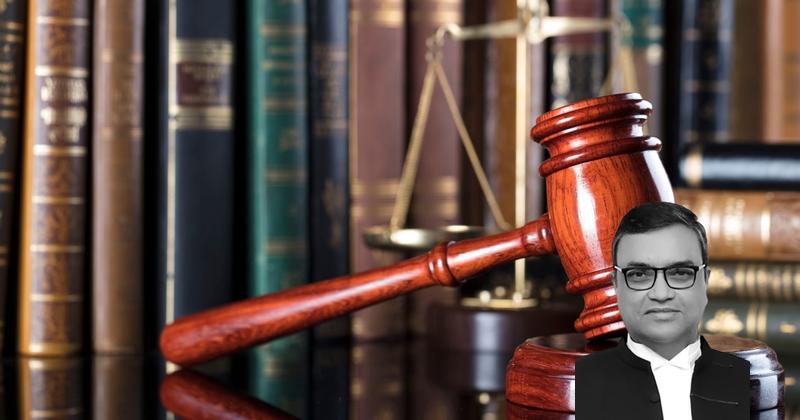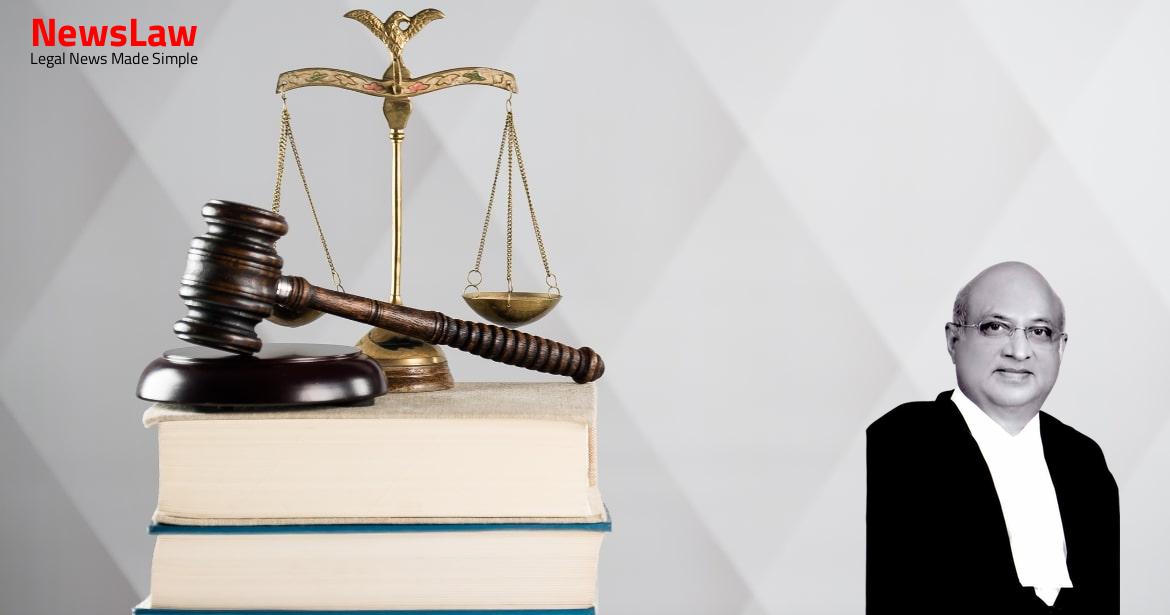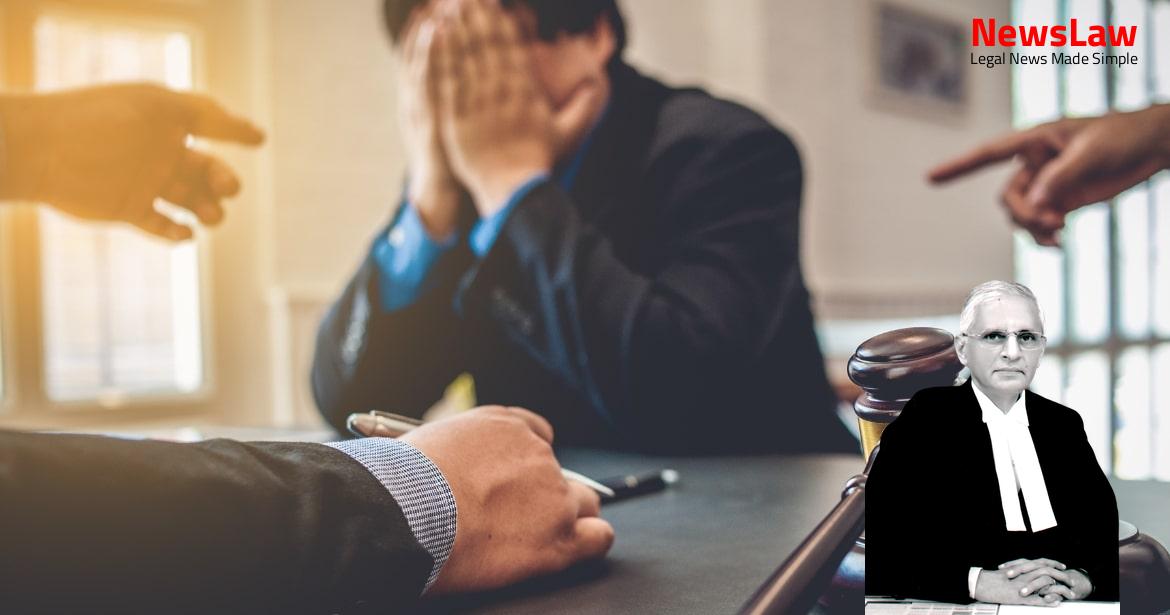A reference to the above observation is also found in the decision of the Oudh Judicial Commissioner’s Court in Kuer Jang Bahadur vs Bank of Upper India Ltd. The Executing Court was seized of an execution application under Section 47 read with Order XXI Rule 97 of the Civil Procedure Code, 1908 (“CPC”, hereafter) filed by the Appellants, seeking enforcement of the decree dated 21 October, 2000 (“Decree”, hereafter) and removal of resistance put forth by the contesting respondents herein (“Respondents”, hereafter). Having regard to the nature and extent of controversy raised, a decision on these appeals should not have necessitated noting the facts triggering the appeals and the rival contentions advanced across the bar in any great depth; however, since the parties have addressed us at length, we propose to briefly narrate the essential facts and refer to the rival claims as advanced by learned senior counsel for the parties before recording our conclusions on such claims. Cherian in respect of land measuring in excess of 2.81 acres in Village Nattakom, Kottayam, Taluk, Kottayam District, Kerala (“Suit Property”, hereafter), and recovery of possession with mesne profits from the Defendants.
Mathew, the caretaker of the Suit Property, had intended to purchase the same from her deceased husband, that the sale had not been completed as balance consideration was still to be paid, and that in the interim the Defendants had made constructions on the Suit Property.
In course of trial of the Suit, the question of tenancy was referred by the trial court to the Land Tribunal under Section 125(3) of the KLR Act. Mathew passed away on 18 January 1998, and the proceedings before the High Court continued with his sons Mr. No 27/1991 on 18 December 1998, and opined that the Defendants were not entitled to fixity of tenure.
It was partly allowed on 11 February 2014, inter alia, to the extent that the Decree was modified whereby Mrs. The Appellants were directed to deposit the balance compensation, whereafter the Defendants were required to handover possession of the decretal property to the Appellants; the Decree was otherwise kept undisturbed. 107/1992 and 55-56/1989 before the Land Tribunal. On 23 January 1993, the Land Tribunal issued a Purchase Certificate to Mr. After obtaining the Purchase Certificate, parcels of the decretal property 6 were sold by Mr. On 5 April 7 2018, a Single Judge of the High Court directed the Executing Court to consider the Appellants’ contentions on the objections filed by the Respondents and decide the same on or before 30 June 2018. The Respondents had no rights in the decretal property and hence no locus standi in the matter to resist the Decree which was made two decades back. Mathew himself had no title to the decretal property.
The objections are frivolous and not maintainable and in the light of the order of this Court dated 13 October 2014, in SLP (C) No 24344/2014, which had given finality to these proceedings, the conduct of the Respondents has the effect of nullifying such order. Omesh Mishra Memorial Charitable Trust, where this Court expounded that Order XXI Rule
Also Read: https://newslaw.in/supreme-court/appellant-convicted-for-culpable-homicide-not-amounting-to-murder/
97
empowers a decree- holder to make an application complaining about any resistance or obstruction in possession of immovable property and that Rule 102 also clarified that Rules 98 and 100 would not apply in cases where resistance or obstruction in execution was offered by a transferee pendente lite, where the property was transferred by a judgment debtor to such a person after the institution of a suit in which the decree sought to be executed was passed. Mathew was a tenant of the entire decretal property and on a part thereof he along with Mr. Further, two other Purchase Certificates had been issued by the Land Tribunal to certain Respondents in the proceedings being SM Nos. The Respondents as objectors had set up title, independent of the judgment-debtors, and that their objection deserved to be adjudicated by the Executing Court. Director of Income Tax, Bangalore, where this Court opined that the scope of discretion under Article 136 of the Constitution of India while granting special leave was such that only a substantial question of general importance or one already pending before this Court should be entertained, especially when remedies 12 under Article 226 and/or 227 were available on the same grounds before the High Court. Chitambaresh urged that no case for interference has been set up by the Appellants and that the Executing Court ought to be left free to decide the objections on merits. Should there be any resistance offered or obstruction raised impeding due execution of a decree made by a court of competent jurisdiction, the provisions of Rules 97, 101 and 98 of Order XXI enable the executing court to adjudicate the inter se claims of the decree-holder and the third parties in the execution proceedings themselves to avoid prolongation of litigation by driving the parties to institute independent suits. Anand reiterated that the executing court was bound to adjudicate the claim of an obstructionist and to record a finding allowing or rejecting the claim which was laid before the executing court, the person being neither a party to the earlier proceedings nor the decree being passed against him.
Referring to Rules 97 to 106, this 15 Court further held that they were intended to deal with every sort of resistance or obstruction raised by any person and that Rule 97(2) made it incumbent on the court to adjudicate upon such complaint in accordance with the procedure laid down. This Court also proceeded to observe: “It is clear that executing court can decide whether the resistor or obstructer is a person bound by the decree and he refuses to vacate the property. Divan’s argument has been that the Respondents are pendente lite transferees, the doctrine of lis pendens applies, and in view of the clear terms of Rule 102, the objections were not maintainable; therefore, the Respondents are not entitled to the protection of having an adjudication of their claims in terms of Rule 98.
Cherian was noticed on the transfers made in favour of the Respondents, would also have to be examined by the Executing Court. Notably, it is the contention of the Respondents that the said Purchase Certificate was issued in terms of the KLR Act and not only the same went unchallenged at the instance of Mrs. Abraham on the other has attained finality, the same would not afford any justification for this Court, much less sufficient justification, to uphold the contention of the Appellants which has the effect of subverting, rather than effectuating, the substantive right that Rules 97 to 103 of Order XXI confer on strangers/third parties not bound 18 by the decree for recovery of possession.
Chitambaresh is right when he submits that this Court should not entertain the aforesaid appeals against the order of the Executing Court without such order having been subjected to any challenge by the Appellants before the High Court.
Also Read: https://newslaw.in/supreme-court/ownership-dispute-commissioners-order-and-revenue-documents/
As a matter of practice, the Supreme Court in its discretion does entertain special leave petitions directly from orders of tribunals/courts without the High Court having been approached only in matters where substantial questions of general 19 importance are involved or where a similar issue is pending for its (the Supreme Court’s) consideration. It is made clear that the Executing Court shall proceed to deal with the application of the Appellants under Rule 97 of Order XXI of the CPC together with the objections raised by the Respondents on their own merits and without being influenced by any observation made in this order which has been necessitated only for disposal of the present appeals. In view of the aforesaid order, Contempt Petition (C) No 2091/2018 initiated by the Appellants to punish Mr.
Case Title: JINI DHANRAJGIR Vs. SHIBU MATHEW AND ANR. ETC. ETC. (2023 INSC 544)
Case Number: C.A. No.-003758-003796 / 2023



